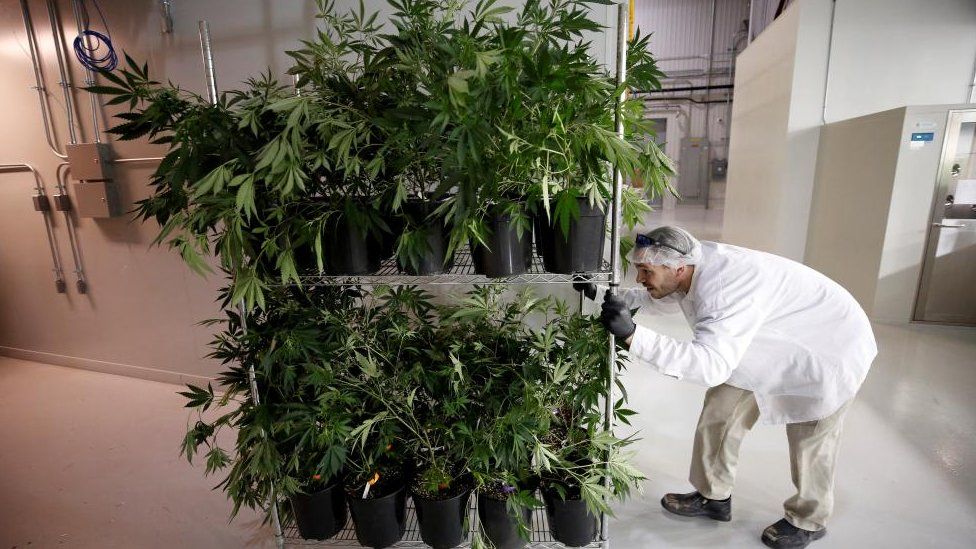-

-
-
Loading

Loading

Canada is one of the few countries that has legalized recreational marijuana, but five years after its legalization, the cannabis industry is struggling to survive. The industry initially had high hopes, with investment pouring in and expectations of substantial profits. However, reality has been different. Aurora Cannabis, one of the largest cannabis manufacturers in the country, has diversified its offerings by starting to sell orchids. Canopy Growth, another major cannabis company, sold its multi-million dollar headquarters back to its original owner. Many cannabis producers have also laid off thousands of workers as they continue to generate little to no profit. Experts and industry leaders attribute these challenges to overregulation, excessive production, and limited opportunities for domestic producers to make money outside of Canada. The country's cautious approach, balancing public health with building a robust cannabis industry, has resulted in strict regulations and limited marketing opportunities. Additionally, the early days of legalization faced issues such as empty shelves and reliance on the illegal market. Despite the economic potential of the cannabis industry, with estimates of billions of dollars added to the country's GDP, investors have reportedly lost over $131 billion in cannabis businesses. While some still view legalization as a success from a public policy perspective, there are concerns about whether the industry can sustain itself and compete in the market. Canada remains ahead of other countries in terms of a legal and regulated cannabis framework, but there is room for improvement, according to industry leaders lobbying for looser laws to benefit the industry without compromising public health objectives. In conclusion, while Canada's legalization of recreational marijuana has achieved certain milestones, the cannabis industry faces significant challenges in terms of profitability, overregulation, and limited international opportunities. The long-term sustainability and success of the industry remain uncertain.